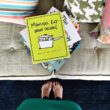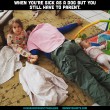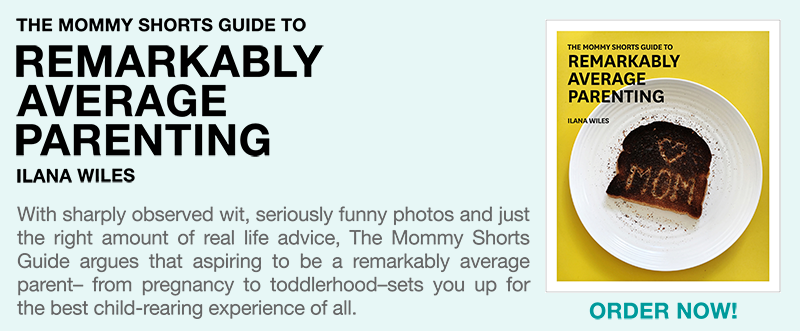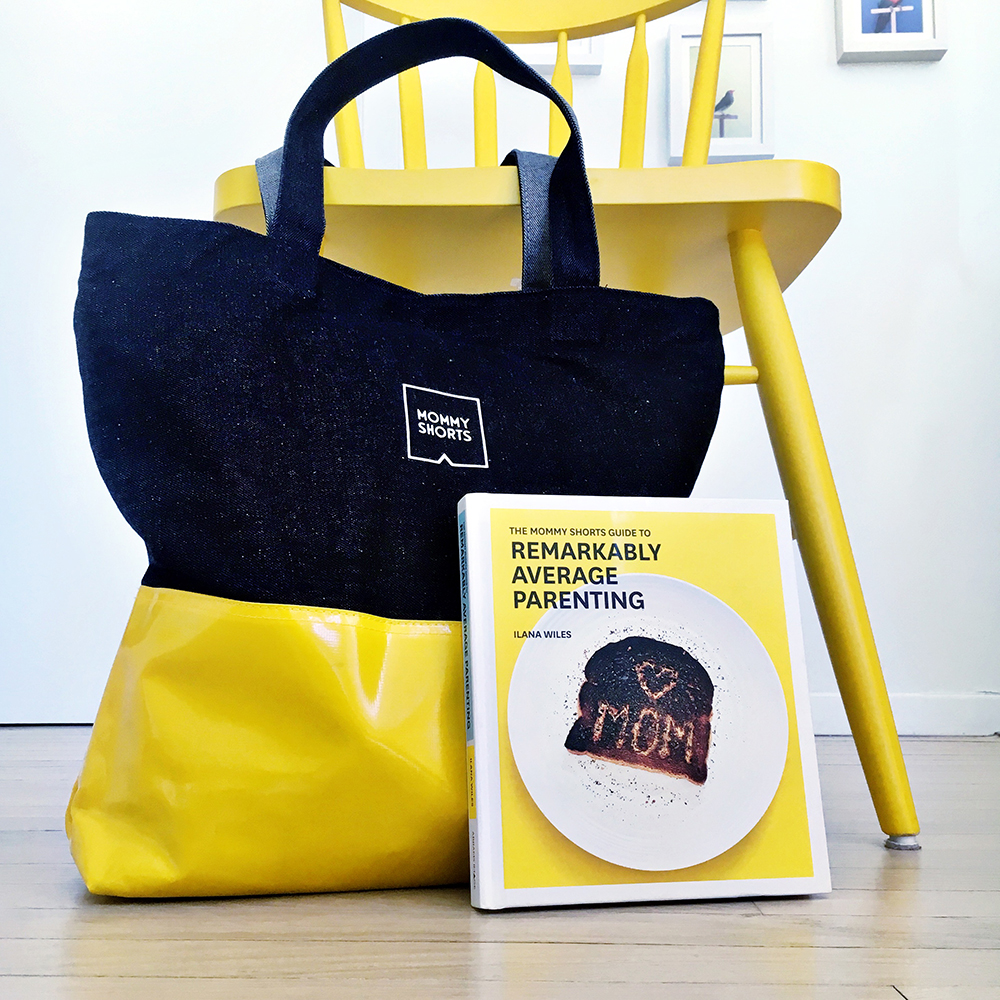 Mazzy is 17 months and has started to tell us when she's pooping. She gets very still, her eyes go wide and then she stares straight through me while quietly repeating the word "POOP". It's like she's trying to warn me that the POOP is about to attack me from behind. I asked Dr. B if this means I should start potty training.
Mazzy is 17 months and has started to tell us when she's pooping. She gets very still, her eyes go wide and then she stares straight through me while quietly repeating the word "POOP". It's like she's trying to warn me that the POOP is about to attack me from behind. I asked Dr. B if this means I should start potty training.
Short answer: How much do you like cleaning shit off a bathroom floor?
——-
Dr. B has a PHD in school psychology and specializes in early development.
Children usually begin to show signs they are ready for potty training between the ages of 18 and 30 months. Boys tend to start later than girls. Most children achieve mastery before the age of 5.
Nevertheless, the initiation of potty training should be based on what your child can do, not your child’s age. Additionally, many experts recommend waiting until 30 months before starting to potty train even if a child begins to show readiness signs earlier.
Waiting until your child is physically, emotionally, and intellectually ready increases the likelihood that he/she will achieve success early on, while pushing your child before he/she is ready has the potential to result in resistance to training and unnecessary frustration for all parties involved.
10 Signs Your Toddler is Ready For Potty Training
1. Your child dislikes being in wet or soiled diapers.
2. Your child knows the difference between being wet or dry.
3. Your child tells you when they are urinating or about to have a bowel movement.
4. Your child expresses interest in using the toilet, in his/her bowel movements, in how others use the bathroom, and/or in wearing underpants.
5. Your child can pull his/her pants up and down.
6. Your child stays dry for at least 2 hours during the day and has dry diapers after naps.
7. Your child has bowel movements at regular, predictable times.
8. Your child has the muscle control to hold their urine or bowel movement to get to the toilet.
9. Your child can understand and follow simple directions.
10. Your child can get to the potty, sit on it, and get off the potty.
When your child begins to show some of the signs above, you should start increasing their interest and readiness by talking to them about going to the bathroom. Below is a list of methods you can use to better prepare your children for the potty training process.
9 Ways To Increase Your Child's Readiness For Potty Training
1. Tell them that big kids use toilets instead of diapers.
2. Read books about potty training and bring your child to the bathroom to help them make the connection between the bathroom items they see in the story and actual items in their bathroom.
3. Let them try out different steps mentioned in the story such as sitting on the toilet, ripping the toilet paper, and flushing the toilet.
4. Start changing your child in the bathroom and perform some aspects of the bathroom process together such as throwing the contents of their diaper in the toilet, using the toilet paper to wipe, and letting them flush and watch it go down.
5. Invite your child into the bathroom with you or your spouse, demonstrate how to go and describe what you are doing.
6. Increase your child’s awareness of the signals their bodies send when they need to go by pointing them out when you think they are happening (e.g., when your child stops an activity for a few seconds to go in their diaper or holds their diaper while going or when wet).
7. Talk out loud about how you feel before you need to go and describe how your body feels.
8. Teach your child words such as "wet" and "dry" and encourage them to use these words when they need to be changed.
9. Introduce words or phrases they can begin to use if they want to use the toilet (i.e "I have to go")
Lastly, it is always better to delay potty training if your child does not show interest or readiness signs. The longer you wait, the shorter and easier the process will be.
Editor's Note: Point made. Mazzy and I will wait.
Read Dr. B's Potty Training 101 here.
Editor's Note: There will be a future post from Dr. B detailing the best potty training methods. If you would like that post to write itself IMMEDIATELY, please let me know.
Update: As promised: Dr. B's Potty Training 101
If you have a question for Dr. B, please email me at myshort@mommyshorts.com.
























Sigh. My 2 year old started asking for potty a couple weeks ago. At first she was interested and then she backed off. I’m not pushing it too much but I’m still trying to get her to go. Thanks for the tips Dr. B. I will try to put them to use.
Yes, please I would like more posts on the potty subject.
I would like that post to write itself IMMEDIATELY… please. 🙂
I definitely recommend waiting, and not pushing it. My older child began showing interest at 18 months, so we started. Then she started resisting. It became a battle. And as first time parents and first time potty-trainers, we didn’t take the hint very well. It became a frustrating process that continued until about a week before her 3rd birthday.
With our second, I just held back. Waited until he wanted to do it. Must faster process.
And, diapers and pull ups are much easier than public bathrooms and always needing several changes of clothes.
Yep…would appreciate that advice STAT!
My youngest (a boy) is turning 3 tomorrow and still has NO INTEREST in sitting on the potty. He’ll do it sometimes at daycare, but will not do it at home at all!
Help!!!!!
Don’t wait too long to start! My friend has a son that’s 3 weeks older than my son, and he’s still not potty-trained and in danger of not being able to start Kindergarten, yes Kindergarten, in the fall. He’ll be 5 in August. Now it’s just a control thing between him and his parents. We started at 21 months. I approached it like I was training a new puppy. I didn’t wait for my son to tell me he had to go – they’re too little for that – we just went to the potty about every hour & before we changed activities. It took awhile for him to be fully trained, but it worked great. We still have the same routine.
Have your friend write to me. I know how to deal with this. My son was 4 and a half. He’s all grownup and presumably knows what he’s doing now.
With all 3 of our boys, I followed Dr Sears advice and began on the day of their 3rd birthday. They were all potty trained within a month, and we had no problems after that.
I think once they gave the muscle control for their urinary tract it makes teaching them so much more full of successes and rewards.
Have no idea about how to do it with girl equipment,though..can only help you with the firehose stuff.
I have a friend. And she is a lovely person. But I fear she is a little bit crazy. Because when her daughter was only 15 months old, she SWORE that she was showing interest in the potty and began potty training. And now, four months later, she posts things on Facebook like, “V has gone on the potty EVERY TIME today!” And I just shake my head and shut my mouth because I just have one word for her: Regression.
OTOH, my child, who is exactly one month younger than hers, shows absolutely zero interest in potty training beyond saying bye-bye to her poop when we throw it in the toilet. And that’s OK. Because I’m in no hurry to start it. I much prefer changing diapers to pee and shit on my floors and multiple trips to the bathroom in the middle of the night. But, you know… to each their own.
P.S. Said friend also swears her 19-month-old can read more than five words straight from a book. So, there’s that…
“5. Invite your child into the bathroom…..”
I’m sorry, but if your child is not in the bathroom with you every time you use it-there is probably no hope in EVER potty training them!?!! haha
I am trying with my 2 year old w/o pushing too much as she’ll back off. Hasn’t been to successful so far even though she meets most of the readiness requirements.
My 2 year old LOVES to go potty, on the potty chair, which means he sits on it for five seconds and says “ALL DONE” and lately? He doesn’t want to sit, he wants to stand like his brother. So, I am so not potty training him right now. I let him do the whole horse and pony bathroom show sometimes just to keep him interested but seriously.
My 3 almost 4 year old has been potty trained since he was 20 months, but he has never been dry at night. Recently he’s been forgoing the potty to just wet his pants and we aren’t sure if this is a discipline issue or a medical one, so we are just going with it and not reacting but it is getting old. I am starting to worry because he soaks through his pull ups at night. We take him potty and change him before we go to bed and STILL he wakes up soaked. We have also cut back on fluids before bed and all that. I’m wondering if his bladder shrunk or something. It’s freaking me out, AND it’s waking me up at 5 a.m.
I would like to add my voice to the chorus that says “I really would like that post to write itself IMMEDIATELY”. We are just on the cusp of starting to train our 2.5 year old daughter. My son, who just turned 5, was trained at 3 years 3 months, but still has a soaked pull-up at night. He sleeps SO deeply that it’s impossible for us to wake him up, let alone a full bladder. I’m not sure how long that is going to continue or what to do to help. Advice on that front would also be appreciated.
My son turned 5 in April and I JUST got him trained. 3 weeks now going strong, I feel confident in saying we finally have it, right before kindergarten in the fall. After everything it took to get him going, though, I have absolutely 0 desire to even start with my 2.5 year old daughter. Maybe she’ll be more like my oldest, who practically trained himself. Now that was nice and completely none of my doing.
I do agree with folks who have said you don’t want to wait too long, but I also feel like it’s important to wait – not only if they don’t show any of the signs, but it is SERIOUSLY annoying to take them anywhere in the early stages of potty training. You have to constantly be thinking about whether there’s a bathroom within 5 feet, you can’t drive for long periods of time, you have to have a change of clothes and not mind handling urine and poop-soaked underwear… I’m trying to dance that delicate balance of waiting as long as possible, but not too long!! Selfish? Maybe just a little : )
I love this stage when kids get totally self conscious about pooping. All 3 of my kids would all of a sudden disappear and I’d find them hiding behind the couch, squating and grunting doing their biz-nass. Then demanding to be changed…
Yes, yes, yes don’t push. As much as being out of diapers is fab, accidents in underpants is no joke. Go, Mazzy, Go!
Usually I’m so jealous of you, what with your good-looking blog and hip apartment and general je ne sais quoi of Manhattanite success. But today? You just reminded me of that of which I will never EVER be jealous.
HAAAAVE FUUUUUN.
My mom told me that I was not allowed to go to nursery school because I couldn’t use the bathroom like a big girl. I promised her I would be fine. She let me go and I was potty trained from that day forward. Or so Ilana legend goes.
Tell your friend to email Dr. B.
This reminds me of a post that Dr. B wrote about “Baby Can Read.” She says that if you teach kids to do things prematurely, you are just taking away from them learning and experiencing other things— like playing.
Ok. Think about this. If her baby can read, than wouldn’t he be able to read the WHOLE BOOK? Five words straight is just a good memory. Mazzy actually knows the names of all of her books and will fill in words if I leave them out while I read to her. But she cannot read. That is ridiculous.
Good point. Mazzy does not miss an opportunity to accompany me to the bathroom. She may have even sat on my lap more than once.
Would you want Dr. B to field this question?
You know I hadn’t really considered how horrible this is all gonna be till I read the comments. AWESOME.
Preachin’ to the choir, sister. You know this. I know this. My friend, however, sees what she wants to see.
I’m so glad I came back and read this!
My MIL has been pushing us to train our 15month old but I’m certain she’s not ready.
This just confirmed it!!
we’re getting more and more into the potty training lately (Goose just turned 30 months) and I’m hopeful that we’re successful quickly – I’m tired of changing diapers 😉 Thanks for the tips!!
[…] weeks ago, Dr. B (our resident early development specialist) did a post about how to tell when your child is ready for potty training. I determined that Mazzy’s got at least another year before I start spending all day, every day […]